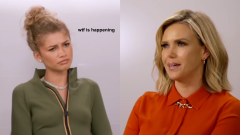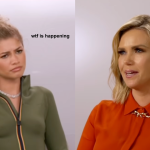
Greens senator and Yamatji Noongar woman Dorinda Cox’s motion for a national inquiry into missing and murdered First Nations women and children has been passed by the senate.
This inquiry is the first of its kind in Australia and will investigate the systemic roots of violence including underlying social, economic, cultural, institutional and historical causes contributing to the ongoing violence and particular vulnerabilities of First Nations women and children.
Cox is WA’s first female Aboriginal senator. She used her inaugural speech last month to push for First Nations rights, warn against systemic discrimination, and call for this inquiry.
After her motion was passed she said it was “20 years in the making”.
“This important motion is history-making because on this day, in this place, we have the opportunity to refer to the committee an important issue for First Nation women and children who have been missing and murdered,” Cox said.
“This issue has continued for generations — generations of families and communities that have been affected.”
Victorian Greens senator and Gunnai Gunditjmara and Djab Wurrung woman Lidia Thorpe was also in the senate and called it an historic day. Thorpe spoke about her personal attachment to this motion and said that her cousin was murdered in Victoria five years ago.
“[She was] dumped on the front lawn of her mother’s house, dead, by the perpetrator that killed her,” she said.
“Today is the day where First Nations women and children’s cries have finally been heard.”
The inquiry will investigate the number of First Nations women and children who are missing and murdered and the current and historical practises and resources used to investigate those cases, vs non-First Nations children.
She said more than 76 women are currently missing nationwide, many presumed dead, but that that data across states and territories on those cases was “inconsistent and ad hoc”.
Cox said she had heard from the many families left behind who still wonder why the cases of their loved ones go unnoticed and unsolved.
“As a former police officer, I know there is a different urgency into looking for First Nations women and girls. This is particularly so for First Nations people, and more so for women and girls,” she said.
This comes less than a month after Australia was captivated by the story of missing four-year-old white WA girl Cleo Smith, while other missing First Nations children went ignored by the media.
At the same time, WA Police were seeking assistance in locating missing 12-year-old First Nations boy Shaun Wallam, who disappeared in Armadale and was last seen in his school uniform. Wallam has since been found, but the media coverage of his case was practically zero.
In 2019, and ABC investigation revealed that in WA Aboriginal people made up 17.5% of missing persons cases, despite representing just 3% of the state’s population.
The inquiry will also investigate systemic causes of, and institutional legislation and practices in response to, violence against First Nations women and children. Aboriginal women are 45 times more like to experience domestic violence, and up to 80 times more like to experience any violence, compared to other Australians.
“We need to do better and this is why we need a national inquiry, so we can see the standard of practice and how we can work together to develop better systems,” Cox said.
The Legal and Constitutional Affairs References Committee will report on the matter by 30 June 2022.







